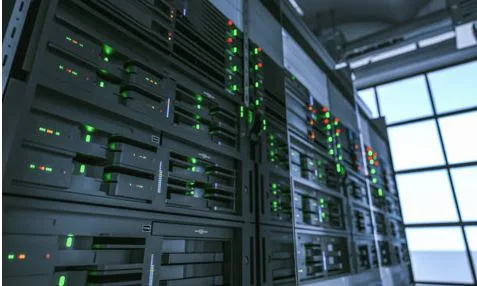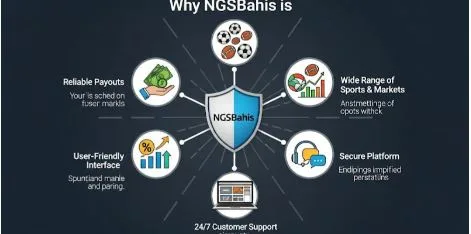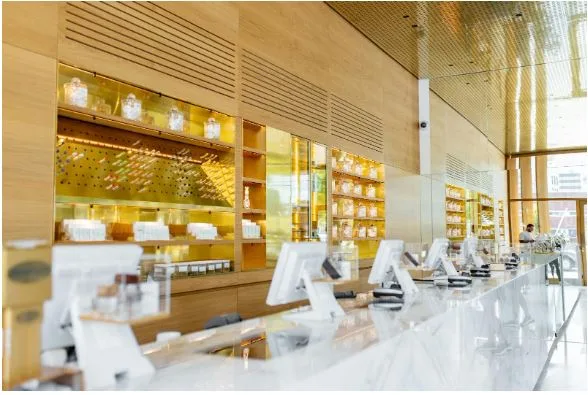Teraco’s Cape Town Data Centre Expansion Reaches 50MW Milestone
In a transformative development for South Africa’s digital infrastructure, Teraco Data Environments has completed the expansion of its CT2 hyperscale data centre in Cape Town, bringing the facility’s total critical IT load to 50 megawatts (MW). The completion marks a significant milestone in Africa’s digital transformation journey and cements Teraco’s position as the continent’s leading interconnection and colocation provider.
The Expansion: Building Africa’s Digital Gateway
The newly completed expansion adds 32MW of capacity across eight new data halls built over three levels, bringing the total supported IT load at the Cape Town campus to 50MW. This massive infrastructure investment represents one of the largest data centre developments in the Western Cape and positions the facility as a critical hub for cloud computing, artificial intelligence workloads, and enterprise applications across the African continent.
The 73,000 square metre facility is serviced by 90MW of utility power, providing substantial headroom for future growth and ensuring reliable operation even during South Africa’s ongoing energy challenges. The multi-level design optimizes land usage while creating a modern, purpose-built environment specifically engineered for the demands of next-generation computing.
Technical Capabilities: Built for the AI Era
Teraco’s CT2 expansion isn’t simply about adding capacity—it’s about preparing for the future of computing. The facility supports high-density computing deployments and is designed to accommodate liquid-to-liquid cooling, essential infrastructure for clients deploying AI training clusters, inference nodes, or large-scale data lakes.
As artificial intelligence and machine learning applications proliferate across Africa, the computational demands are growing exponentially. Traditional air cooling systems struggle to handle the heat generated by modern high-performance computing equipment. Liquid cooling technologies, which CT2 now supports, can handle significantly higher power densities while maintaining optimal operating temperatures and energy efficiency.
The facility’s design reflects the evolution of enterprise computing needs. CT2 Phase 2 consists of four data halls of 5.3MW, two data halls of 3.1MW, and a further two data halls of 2.2MW, all built over three levels. This modular approach allows clients to scale their deployments incrementally, matching infrastructure costs to business growth while maintaining access to world-class facilities.
Strategic Location and Connectivity: Cape Town’s Digital Advantage
Cape Town’s position at Africa’s southern tip has historically made it a natural convergence point for international telecommunications, and Teraco’s CT2 expansion capitalizes on this geographic advantage. The campus is connected to all the subsea cable systems that land in the Cape region, including ACE, Equiano, SAT-3, SAFE, WACS and 2Africa, amplifying the value of CT2 as a digital gateway for continental and global traffic.
The concentration of submarine cable infrastructure landing in Cape Town is remarkable. The 2Africa cable system, one of the world’s largest at 45,000 kilometers in length with a design capacity of 180 Terabits per second, represents a particularly significant asset. When fully operational, this Meta-backed system will circumnavigate the entire African continent, providing unprecedented connectivity between Africa, Europe, and the Middle East.
Google’s Equiano cable, which landed near Cape Town with a capacity of 144 terabits per second, further enhances the city’s position as a digital gateway. These cables carry the vast majority of intercontinental data traffic, and direct access to them provides CT2 clients with low-latency connections to global markets.
The CT2 data centre is linked by diverse fibre routes to the CT1 facility and supports over 7,000 interconnects across the Cape Town Campus. This ecosystem of connectivity means that enterprises colocating at CT2 can establish direct connections to hundreds of network providers, cloud platforms, and other businesses without the delays and costs associated with traditional telecommunications arrangements.
Platform Teraco: An Ecosystem Approach
Through Platform Teraco, clients gain access to far more than just physical space and power. Clients benefit from direct connectivity to major cloud provider on-ramps, seamless peering via the NAPAfrica internet exchange point (IXP), and access to multiple carrier and content providers.
The NAPAfrica Internet Exchange Point, created by Teraco in 2012, has become Africa’s largest IXP and recently achieved a milestone of five terabits per second of traffic. By enabling direct peering between networks, NAPAfrica dramatically reduces latency and bandwidth costs for African internet users while keeping local traffic on the continent rather than routing it through international links.
For enterprises deploying hybrid or multi-cloud strategies, CT2 provides critical infrastructure. Clients deployed at either the CT1 or CT2 facilities can connect directly to AWS Direct Connect and Microsoft Azure ExpressRoute, or utilize Teraco’s Africa Cloud Exchange to reach a broader range of cloud providers. This direct connectivity eliminates the unpredictability and limitations of public internet connections while providing dedicated, high-performance links to cloud resources.
Sustainability at the Core: Zero-Water Design and Renewable Energy
In a region that has experienced severe water scarcity, Teraco’s approach to cooling represents a significant innovation. CT2 uses a zero-water, closed-loop cooling system that relies on AI-driven temperature optimization and free-air cooling without consuming water—a crucial feature in drought-prone Cape Town.
Traditional data centres consume enormous quantities of water for cooling—a luxury that water-stressed regions like Cape Town cannot afford. Teraco’s zero-water design eliminates this environmental impact entirely while achieving industry-leading power usage effectiveness (PUE). The system incorporates free air cooling when ambient conditions allow, intelligently switching between cooling modes based on real-time conditions.
The integration of artificial intelligence into the cooling management system represents the cutting edge of data centre operations. AI algorithms continuously analyze heat distribution, IT load patterns, and environmental conditions to optimize cooling efficiency in real time, reducing energy consumption while maintaining optimal operating conditions.
Beyond efficient cooling, Teraco is addressing the broader challenge of energy sustainability. The company is developing its own 120MW solar PV plant to supply clean energy to its data centres, including CT2, through energy wheeling. This approach—owning and operating renewable energy assets rather than simply purchasing renewable energy certificates—demonstrates a genuine commitment to sustainable operations.
Energy wheeling, a mechanism that allows companies to transmit renewable energy they generate through the national grid to their facilities, enables Teraco to power its operations with clean energy even when solar generation and consumption don’t coincide perfectly. This 120MW solar installation will significantly reduce Teraco’s carbon footprint while providing price stability in an energy market characterized by volatility.
Economic Impact: Jobs, Skills, and Regional Development
The CT2 expansion delivers economic benefits that extend well beyond the technology sector. The expansion has generated hundreds of local construction jobs, contributing to regional economic growth and skills development, and the facility will employ around 30 new full-time staff on an ongoing basis.
Data centre construction requires diverse skilled trades—electrical engineers, HVAC specialists, construction workers, project managers, and more. By sourcing construction talent locally, Teraco has contributed to skills development in the Western Cape while supporting the regional economy during a challenging economic period.
The permanent positions created by the expansion represent highly skilled, well-compensated employment in a critical infrastructure sector. Data centre operations require specialists in electrical systems, cooling infrastructure, network operations, security, and facilities management—skills that are increasingly valuable as Africa’s digital transformation accelerates.
Beyond direct employment, the presence of world-class data centre infrastructure attracts other technology investments to the region. Cloud providers, content delivery networks, telecommunications carriers, and technology companies establish operations in locations with robust data centre ecosystems, creating multiplier effects throughout the economy.
National Portfolio: Africa’s Largest Platform
The completion of CT2’s expansion significantly enhances Teraco’s national footprint. With the completion of CT2, Teraco’s total platform capacity across South Africa now reaches 189MW, including Isando (70MW), Bredell (64MW), Cape Town (53MW) and Durban (2MW).
This distributed network of facilities provides clients with geographic redundancy and disaster recovery options while positioning Teraco to serve enterprises across South Africa’s major economic centers. The Johannesburg facilities in Isando and Bredell serve the Gauteng economic heartland, while Cape Town addresses Western Cape requirements and provides access to submarine cable infrastructure. The smaller Durban facility provides an additional option for east coast connectivity.
Teraco’s portfolio represents approximately 25% of South Africa’s total data centre capacity, cementing its position as the market leader. This scale provides competitive advantages in procurement, operational efficiency, and the ability to attract major international clients who require substantial capacity and proven reliability.
The Digital Realty Connection: Global Platform, Local Expertise
In January 2022, Digital Realty—one of the world’s largest data centre operators—acquired a 55% stake in Teraco in a transaction that valued the company at $3.5 billion. This partnership provides Teraco with access to capital, global expertise, and an international customer base while preserving the local management team and operational approach that made Teraco successful.
Digital Realty operates over 300 data centres across 50+ metros in 25+ countries on six continents. For multinational enterprises deploying global IT infrastructure, the ability to work with a single provider across multiple continents simplifies procurement, operations, and governance. Teraco clients now gain potential access to this global platform while benefiting from Teraco’s deep understanding of African market dynamics.
The partnership has enabled Teraco to accelerate its expansion plans. In 2024 alone, Teraco completed major expansions at both its East Johannesburg (Bredell) facility and now the Cape Town CT2 campus. Access to Digital Realty’s balance sheet and capital markets expertise has facilitated a syndicated loan facility worth R11.8 billion, providing the financial resources necessary for continued growth.
Meeting Africa’s Digital Transformation Demands
The rapid expansion of data centre capacity in South Africa reflects fundamental shifts in how African enterprises and consumers use technology. Cloud adoption is accelerating as organizations recognize the operational and financial advantages of cloud computing. Mobile internet penetration continues to grow, with smartphones bringing millions of Africans online for the first time. Streaming video, social media, e-commerce, and other bandwidth-intensive applications are proliferating across the continent.
According to Jan Hnizdo, Teraco’s CEO, the CT2 expansion addresses these evolving requirements. “CT2’s expansion underscores our continued commitment to meeting the demand for large, hyperscale infrastructure in Africa. This facility expands Platform Teraco by providing clients with the ability to scale on demand, proven resilience, an extensive interconnected ecosystem, and a broad array of low latency connectivity options.”
The shift toward artificial intelligence represents perhaps the most significant driver of future data centre demand. AI training and inference workloads require vast computational resources and generate enormous amounts of heat—precisely the challenges that CT2’s high-density, liquid-cooled infrastructure addresses. As African enterprises deploy AI applications for customer service, fraud detection, predictive maintenance, and countless other use cases, facilities like CT2 become essential enablers.
Competitive Landscape: Racing to Build Africa’s Digital Infrastructure
Teraco operates in an increasingly competitive market. According to Mordor Intelligence, the South African data centre market is estimated at 434.86MW in 2024 and is expected to reach 828.93MW by 2029, growing at a compound annual growth rate of 13.77%. Major competitors include BCX, Equinix, NTT, and Vantage Data Centres, all of whom are investing heavily in capacity expansion.
Equinix, the world’s largest data centre operator, acquired MainOne’s West African operations in 2024, expanding its African footprint. Vantage Data Centres is building a major campus in Johannesburg. International operators clearly view Africa as a high-growth market worthy of substantial investment.
However, Teraco maintains competitive advantages. Its established presence, extensive interconnection ecosystem, and submarine cable access provide network effects that are difficult for competitors to replicate. The company’s carrier-neutral positioning means that enterprises and service providers can connect to any network or cloud provider they choose—a flexibility that vendor-specific facilities cannot offer.
CEO Jan Hnizdo acknowledges the intensifying competition in South Africa but sees opportunities across the broader African continent. “Africa is a big market and we are open for business. With all the cable systems that are coming—Equiano, which is Google-owned, and 2Africa, which is Meta-owned—all these companies are starting to see this underserviced one billion population that resides in Sub-Saharan Africa that wants access to the digital economy. That theme is going to be with us for a very long time.”
Building the Foundation for Africa’s Digital Future
The completion of Teraco’s CT2 expansion represents more than infrastructure development—it’s a statement of confidence in Africa’s digital future. At a time when many global investors remain cautious about emerging markets, Teraco and Digital Realty are making multi-billion dollar commitments to African data centre capacity.
The next phase of growth will likely focus on markets beyond South Africa. While the country will remain a critical hub given its strategic location and advanced telecommunications infrastructure, the broader Sub-Saharan African market of over one billion people presents enormous opportunities. Nigeria, Kenya, Egypt, and other major African economies are all experiencing rapid digital transformation and will require substantial data centre investments.
The proliferation of submarine cable systems landing along Africa’s coasts—2Africa, Equiano, and others—provides the international connectivity required to support Africa’s integration into the global digital economy. These cables eliminate the capacity constraints that previously limited African internet growth, enabling streaming video, cloud computing, and other bandwidth-intensive applications to flourish.
For enterprises considering cloud migrations, hybrid IT strategies, or new digital initiatives in Africa, facilities like CT2 provide critical enabling infrastructure. The combination of substantial power capacity, advanced cooling systems, extensive interconnection options, and submarine cable access creates an environment where digital businesses can thrive.




